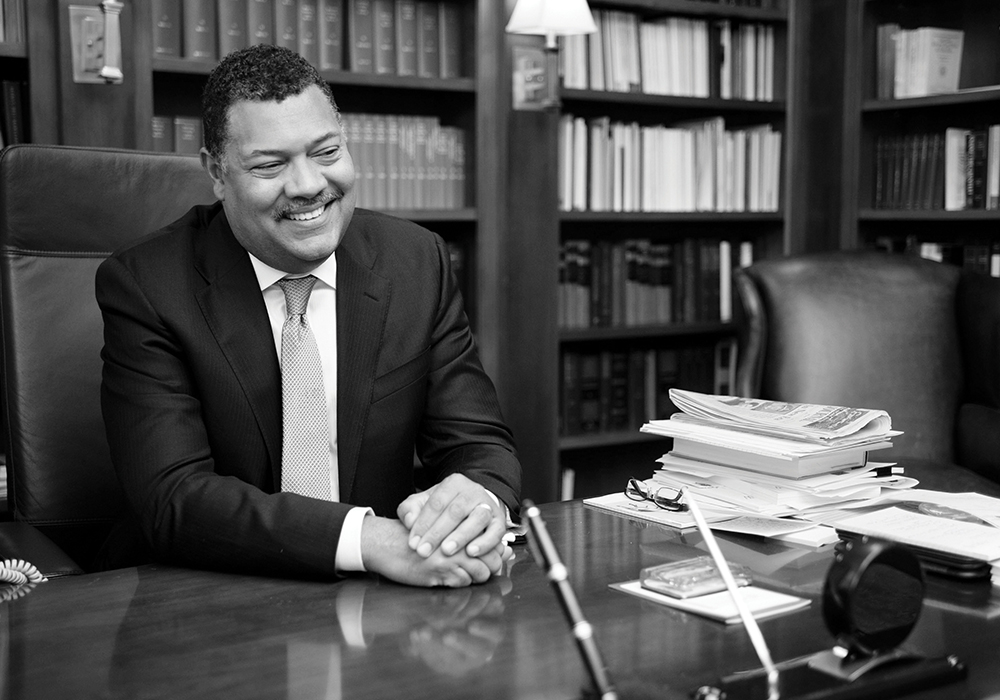This past semester I taught a seminar on the effect of global migration on law, public policy, and democracy in North America and Europe. We tackled a broad range of topics, from nativism and right-wing populism to regional secession and citizenship. I had no idea when I designed the course that Donald Trump would be elected president or that the United Kingdom would vote to leave the European Union. Suffice it to say that hardly a week went by without some major news development that was relevant to the course.
The students and I did a lot of thinking and reading about the nature of law and politics. Time and again, we were confronted with issues that left us struggling to align moral visions for democratic society with the political and social realities we face. In interpreting and empowering the rule of law, our judicial system stands for equal justice for all. For justice to prevail, our legal system must be able to rise above politics. It should not favor one group over another or privilege those who are a certain color, have more money, belong to lobbying groups, or run corporations.
“A just application of the law—one that promotes tolerance and balances the dignity of the individualwith respect for the common good—is more crucial today than it has ever been.”
We all know that this is, unfortunately, not always the case, and it seems even more obvious in today’s world. Today, we are increasingly divided by a lack of respect for others’ opinions. Bitterly contentious political campaigns have become emblematic of a broader decline in civility across our culture. It is increasingly easy to have our own opinions continuously reinforced through our “walled garden” social media accounts, while ignoring or even ridiculing other points of view. The consequences for our common life are far from harmless. Emboldened by their unchallenged opinions, many begin to see their neighbors and fellow citizens as enemies, sometimes with devastating consequences.
Rather than modeling ways to reach across our differences and enhance the common good, many of our political leaders stoke the flames of partisanship, working primarily to hold their seats at the expense of what is best for the country. This is not what being a public servant is supposed to represent.
The Czech intellectual and politician Vaclav Havel wrote that politics “is simply a matter of serving those around us; serving the community, and serving those who will come after us.” This can only be done, he argues, by resisting corruption and by being tolerant, decent, and just. Public servants must set the tone for others by acting with the highest moral standards and by placing the needs of society above all else.
This ethic of service beyond self is especially true for the judiciary. A just application of the law—one that promotes tolerance and balances the dignity of the individual with respect for the common good—is more crucial today than it has ever been. The law can protect our most precious values and our most vulnerable people, or it can tear them down.
This is why leaders who are truly committed to serving others are so very important. And it is why, as lawyers, we must remain true to that commitment. As Havel said, serve your community, and serve those who will come after you. Find the causes that matter most to you, remember that a society is best judged based on how it treats its weakest members, and always respect the power of what the law can do.
Photograph by Suzi Camarata



